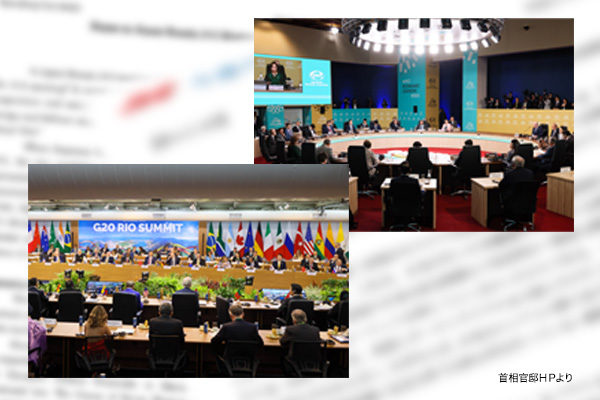The Asia-Pacific Economic Cooperation (APEC) and Group of 20 (G20) summit meetings had been supposed to be a showcase for new Japanese Prime Minister Shigeru Ishiba’s diplomatic debut. I would like to sum up his foreign debut from the following three perspectives:
First, Ishiba’s controversial behaviors demonstrated his inexperience with diplomacy.
Second, Japanese media simplistically tended to link every development to “Trump’s shadow.”
Third, a key question is whether Tokyo can take advantage of the opportunity to lead Beijing to take specific actions in favor of Japan.
Ishiba exposed inexperience with diplomacy
Ishiba’s inexperience with the international stage was evident everywhere. Just before the APEC summit in Peru, Ishiba was sitting in his seat and looking at documents and a smartphone by himself while other Asia-Pacific leaders greeted and chatted with each other. He remained seated when shaking hands with other leaders who came to greet him, lacking diplomatic etiquette. The video footage of the scenes went viral, leading Ishiba to be widely criticized. Foreign Ministry officials who accompanied the prime minister were also shameful to simply stand by and watch. Furthermore, it was a big blunder for the Japanese embassy there to have failed to make it in time for Ishiba’s presence at the group photo of the leaders due to traffic jams on the way back from visiting the grave of former Peruvian President Alberto Fujimori. Foreign Ministry bureaucrats bear heavy responsibility for these gaffes.
“Trump’s shadow” represents misunderstanding
Japanese media reports on the summits were also unsatisfactory, attributing everything to “Trump’s shadow.” They commented that the APEC Leaders’ Declaration included “the importance of a free trade” and “support for the multilateral trading system” in a manner to warn against U.S. President-elect Donald Trump. Such comment represented the media’s lack of understanding.
The declaration was prepared through negotiations at the working level before the U.S. presidential election results were announced. It has nothing to do with Trump’s reelection. Moreover, it is now difficult to reach consensus at multilateral conferences due to disagreements, leading declarations for these conferences to reiterate phrases agreed in earlier conferences. One of such phrases is “support for the multilateral trading system.”
As for “free trade,” a phrase of “free and fair trade” has taken root in international conferences. “Free” represents a warning against U.S. protectionism, while “fair” indicates a rebuke for China’s unfair trade. The APEC Leaders’ Declaration acknowledged the importance of a “free” and “fair” trade. However, the Japanese media took out only “free” and reported the declaration as a warning against the incoming Trump administration.
Opportunity for leading China to take specific actions
China has launched a diplomatic offensive to foreign countries in preparation for the incoming Trump administration that is well expected to take a hard line against China. It also intends to shake U.S. allies and partners, and drive a wedge between these countries and the U.S. As the Chinese economy deteriorates, the Trump administration’s expected high tariffs will be a serious blow to China. Therefore, China casts amorous glances at Japan, a U.S. ally.
Against this backdrop, Ishiba held a summit meeting with Chinese President Xi Jinping in Peru. What did it accomplish? At the summit, the two leaders reaffirmed their commitment to comprehensively promoting a “mutually beneficial relationship based on common strategic interests.” This phrase dates back to the 2008 Japan-China joint statement and has been reaffirmed at recent bilateral summit meetings. No matter how many times the phrase is reiterated, however, it is meaningless unless actions are taken to resolve specific problems.
China is expecting investment from Japan through the improvement of bilateral relations. Immediately after the Ishiba-Xi meeting, Beijing decided to resume a short-term visa exemption for Japanese visitors to China. However, Japan should not end up at this level. There are more serious problems that are hindering investment in China, such as anti-espionage law and concerns about technology leakage. Japan should make the summit as an opportunity to lead China to take specific actions.
Masahiko Hosokawa is a professor at Meisei University and a former director-general of the Trade Control Department at Japan’s Ministry of Economy, Trade and Industry. He is also a Planning Committee member at the Japan Institute for National Fundamentals.


